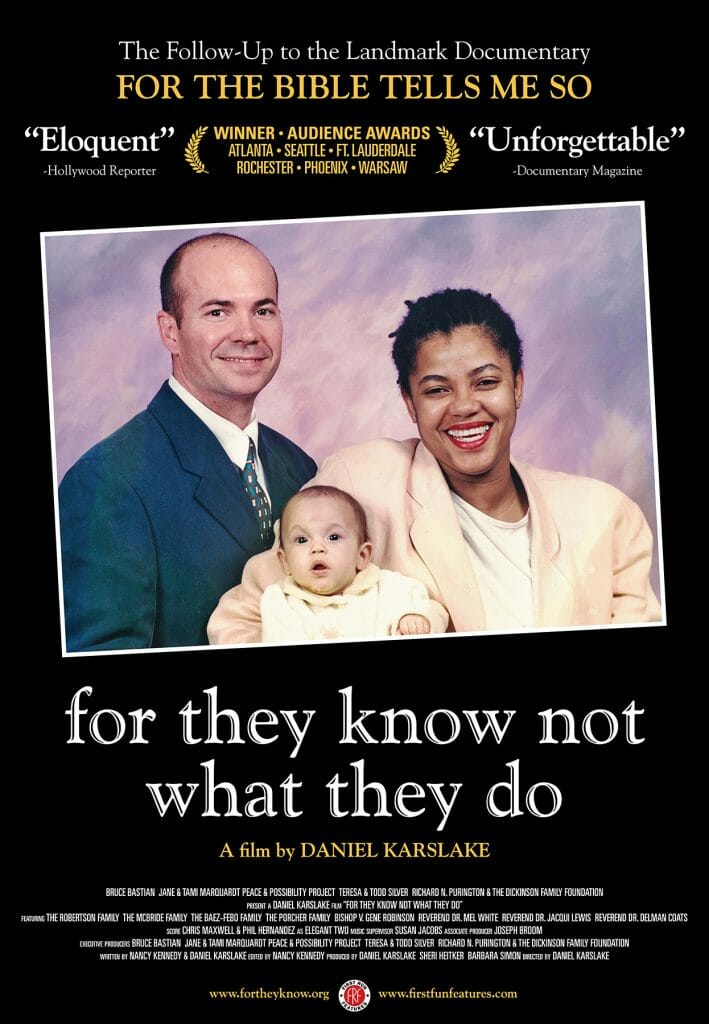On three occasions just this week, as protests rage in all fifty states over the inhumane death of George Floyd and against systemic racism and police brutality, President Trump and his administration looked to religion as a literal cover for their unjust policies. Many religious leaders cried hypocrisy, but for people of color and LGBTQ Americans, there’s consistency: anti-LGBTQ acitivists and some politicians misusing the Bible for political gain, at the expense of equality and basic human dignity.
On Monday, President Trump held up a Bible in front of a church after deploying a militarized clearing of protestors around the White House. The President posed for a photo with the book and five White advisers, images then shared by his campaign.
On Tuesday, to commemorate an executive order supporting religious exemption despite its use to discriminate, President Trump and his third wife visited the shrine of St. John Paul II, an act the Archbishop of Washington called reprehensible, egregious and manipulative.
On Wednesday, the Justice Department filed a friend of the court brief to the Supreme Court, supporting a Catholic agency’s demand to taxpayer funds, even as it discriminates against legally married same-sex taxpayers hoping to become foster parents.
The Bible has long been appropriated by political forces looking to violently enforce the status quo. Every June, LGBTQ people mark Pride month to honor the courage of LGBTQ protestors, many of them Black and Brown, who fought back against New York police “morality officers” at the Stonewall Inn in 1969. It was only last year, 50 years later, that an apology came from the NYPD’s commissioner, saying “The actions and the laws were discriminatory and oppressive.”
Biblical passages have been quoted to oppress women, justify slavery and segregation, and reject LGBTQ people. This can torture parents of LGBTQ children, torn between love for their child and a view that the Bible says being LGBTQ is a sin. It’s a misguided belief that isolates the LGBTQ child from those they love and trust the most, and severs them from their true selves.
Into this crisis of faith and politics comes the follow-up of Sundance favorite For the Bible Tells Me So. The new documentary For They Know Not What They Do centers LGBTQ children and their parents, including two families of color, in the raging culture war waged by the religious right and their political allies against LGBTQ advances like marriage equality and legal recognition of transgender people. It reveals how families can have faith and love their children, even as negative messages bombard them in the media and from conservative religious and political leaders. It gives families tools to counter biblical arguments that conflict with their instincts as parents to love and protect their LGBTQ child.
GLAAD worked with the producers to ensure its transgender participants were involved in important personal decisions while the documentary was being made. The film’s focus on current events shows the urgent need for accurate representation across all media, and increased understanding for LGBTQ people, precisely what GLAAD fights for every day.
Throughout Pride Month, GLAAD supporters can see For They Know Not What They Do and help support GLAAD. Go to www.fortheyknow.org and click on the GLAAD logo to rent the film. A portion of every rental goes directly to GLAAD’s work to accelerate LGBTQ acceptance.
“For They Know Not What They Do is a powerful film that is focused on a message of acceptance and love, something that we all need more of today,” said GLAAD President and CEO Sarah Kate Ellis. “We hope all families see themselves in the film, and fight for a child’s right to be safe and loved for who they are. For They Know Not What They Do is a moving testament to a family’s love, and highlights how important these conversations are for driving acceptance of LGBTQ youth.”
For They Know Not What They Do premiered worldwide Friday June 12. After June 30th, you can go to www.fortheyknow.org to find a participating independent theater to rent from. The theater gets a portion of the proceeds from each ticket sold, to support them during this difficult economic time.













